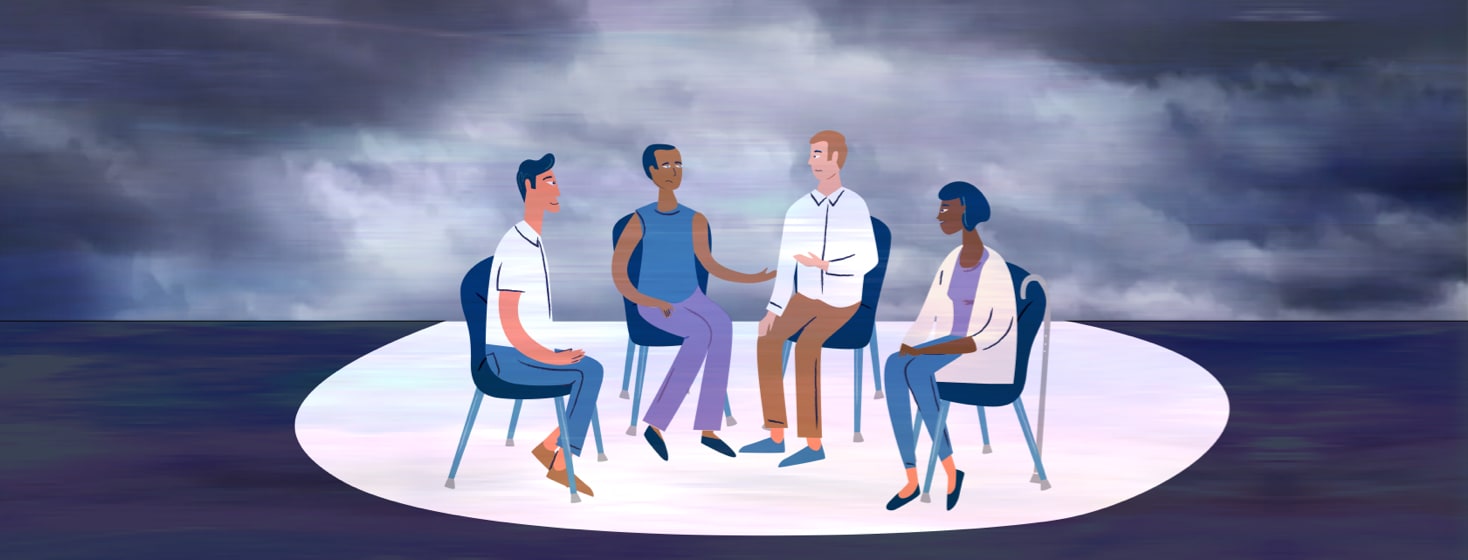Why a Support Group?
I have been facilitating a prostate cancer support group for over five years. It isn't always fun. There are times when I simply don't want to show up, and pretend to be totally in control of my own personal battle with cancer. I know, too, that many of the men that have attended the group over the years have found it difficult to keep attending and having to face whatever their cancer is handing them at the moment.
So I've asked myself more than once: "why do you keep facilitating this group?"
To answer this question I did a deep dive. While I was taking my daily walk, I started to put this question in perspective. Every week we can easily come up with dozens of reasons to avoid attending a support group and even to avoid thinking about our cancer. So why should you join, and why should I continue to facilitate one?
Support groups show we are not alone
First, and maybe foremost, it gets us out of our shell. A group can provide a safe space to talk about our physical issues, our fears, and our emotional selves. Hearing others talk openly about their experiences can broaden our understanding of the disease, but more importantly it reinforces the fact that we are not alone.
In one of our meetings, a guy broke down talking about his struggles over the two months since his surgery. You could feel the group reach out and when he apologized for becoming emotional. He received unanimous support from the 20 or so members. His comments were immediately followed by several others opening up about their feelings. At the end of the meeting the consensus was clear: nearly everyone felt lighter and more able to leave feeling a little less alone and lot more hopeful about their futures.
A chance to share treatment experiences
Secondly, a support group allows the sharing of individual experiences in the diagnosing and treatment of their cancers.
With a dozen or more attendees, there is always a lively discussion of the pros and cons of medical advances and the various institutions and providers with whom the group members have come in contact. If the facilitator is doing their job, these conversations broaden the members' understanding without preaching or passing judgement.
This or That
Are you a part of a prostate cancer support group?
Friendships can form
Another very positive outcome is the formation of friendships among the members. Often men identify others with very similar issues and bond with them. When those with multiple meds, treatments, and experiences find others who have gone on a similar journey, the bonding that occurs can be profound.
I facilitate a gay support group, and we often have open discussions of the urinary and sexual side effects of treatment.
In addition to the above advantages, the group tacitly gives permission to be a little more pushy or at least to be better at developing questions for our doctors and care teams. The group suggests what information is critical to understand and how to press for answers from our doctors. There is always encouragement to advocate for our own personal decisions and to leave no stone unturned. That includes in learning about our disease and in obtaining as many opinions or consults as necessary to feel comfortable with our treatment decisions.
Finding support can be powerful
To revisit my first point, a support group can provide a home where we are not viewed with pity or surrounded by people who are afraid of upsetting or offending us. In fact, our closest friends and relatives may be afraid of facing their own fears and unable to be as open with us as we would like.
While I've tried to make the case for support groups and my continued participation, let me also admit that groups are not for everyone. Sites like ProstateCancer.net and its forums can allow much of the same freedom to explore and to be supported that the in-person groups provide. Regardless of whether you reach out online or in-person...DO REACH OUT.
Life itself and especially life with cancer can be a lonely journey, so we shouldn't pass up the opportunity to make that journey as positive and rewarding as possible!

Join the conversation